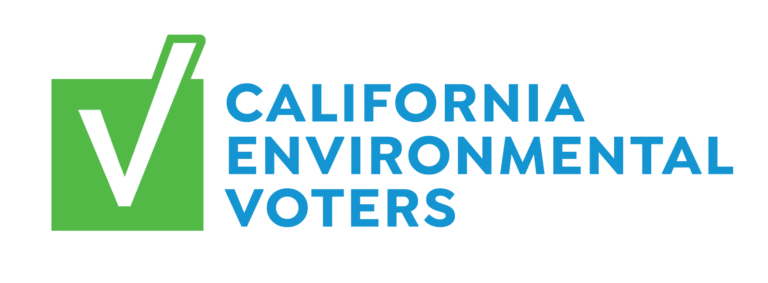Campaign finance is starting to get some traction in the media. This week the LA Times’ Pat McGreevey wrote down his observations about the impact the current rules had on the June primary:
…even battle-hardened veterans of special-interest wars were alarmed by how some of California’s most influential groups flooded a few small campaigns with money in an effort to achieve their goals.
Under innocuous umbrella names such as the California Alliance and Put California Back to Work, they poured more than $1 million into each of three contests for rank-and-file legislative seats — races that merely determined who would advance to the general election.
That’s far more than legislative candidates normally spend on their own campaigns; in 2008, aspiring state lawmakers’ campaign outlays averaged $405,000, according to the nonpartisan National Institute on Money and State Politics.
McGreevey definitely has a good point, but he missed some key facts here.
It’s practically impossible to argue against the influence of independent expenditures on elections. If the goal of campaign finance limitations was to remove the impact that any one group can make on an election, campaign finance rules as they stand fail miserably. The Mary Salas vs. Juan Vargas race for Senate District 40 is a perfect example of that. Pro-corporate groups like the Civil Justice Association of California spent more than $2 million to support insurance lobbyist and former Assemblymember Juan Vargas. It was all CLCV along with our partners in the CA Alliance, the California Nurses Association and the Consumer Attorneys of California, could do to spend $500,000 to support progressive Assemblymember Mary Salas in an attempt to level the playing field.
Ultimately, more money was spent on independent expenditures than by the candidates themselves. This isn’t at all surprising. It’s incredibly difficult and time consuming for a candidate running for State Senate to raise and spend $2 million, especially without self-funding, off of individual size-limited checks. However, third parties are not restricted to the same limitations that candidates are, so it’s much easier for them to raise vast amounts of money quickly.
But the problem isn’t just a matter of limiting campaign contributions. There’s a serious accountability flaw in the way campaign contributions are disclosed. McGreevey noted correctly in his assessment that the independent expenditures came from groups with harmless-sounding names. However, he made a mistake by batching third parties using innocuous names together as if we were all the same.
Here’s the key difference: some groups are purposefully deceptive about who they actually are.
Groups like Put California Back to Work are largely funded by corporate interests that do not actually represent the groups their names suggest they represent. However, you wouldn’t know that unless you actually looked them up on the Secretary of State campaign finance website, as they don’t disclose this fact on their campaign materials because they don’t want voters to know who they actually are. And why would they? Would you be more likely to trust a mailer from a candidate who’s supported by “Put California Back to Work” or “Business Co: A Coalition of Big Oil Companies, Insurance Companies, and Transnational Corporations”? This is vastly different from CLCV and our partners. McGreevey ignores this key fact: our name isn’t actually the CA Alliance, that’s just the short version. We’re officially the CA Alliance: A Coalition of Consumer Attorneys, Conservationists, and Nurses. It’s a long PAC name to be sure, but we include that full name on every campaign piece we use so that voters know exactly who we are and what we represent: them.
In the absence of real campaign finance restrictions, there’s still an important issue of campaign disclosure. While pro-You groups like CLCV and the CA Alliance try to make it as easy as possible for voters to know exactly who we are, the usual suspects that represent Wall Street, large corporations, and polluting interests opt to create front groups with misleading names in an attempt to elect candidates that will be in their pocket.
In fact, this election cycle, they’ve been doing so across the state. In the three races McGreevey mentioned (AD 20, AD 28, and SD 40), pro-corporate groups spent $ millions to support candidates that sympathized more with their interests over the interests of the district they would be representing. And they didn’t just stop there. In her primary bid for the 53rd Assembly District, former CLCV staffer and fundraiser for the Consumer Attorneys, Betsy Butler was hit by these guys with this year’s most over the top smear campaign. CJAC and JOBSPAC accused Butler of being on the side of the very interests that fund CJAC and JOBSPAC! The attack was so over the top, the LA Times even found it rather extraordinary. Fortunately word got out to the voters in the district who these groups really were, and Butler subsequently won that election. We were also successful in helping progressive candidates Bob Wieckowski and Luis Alejo win their races despite being outspent in AD 20 and AD 28 by about four to one. The same cannot be said for Mary Salas who is awaiting the results of a recount after the initial vote saw Vargas win by 22 votes.
Of course, the story doesn’t end there. In what has thus far been an effective attempt to elect former Exxon employee Sam Blakeslee, the Senior Advocates League, another front group for corporations, has spent nearly $1 million in Senate District 15 smearing environmental champion John Laird for the August 22 special election. And unfortunately, until campaign finance laws are fixed or new and improved disclosure rules are in place you can expect this kind of deception to continue throughout November and beyond. The best thing we can do right now is try to get the word out to voters and reveal to them who these groups really are.



